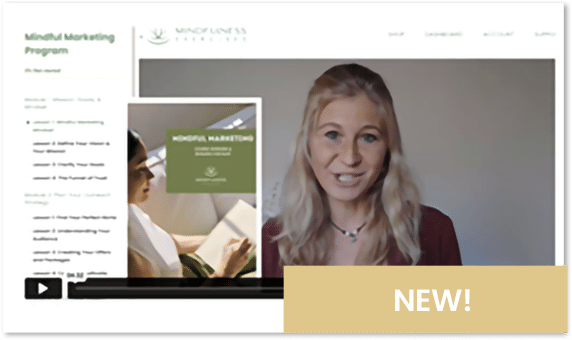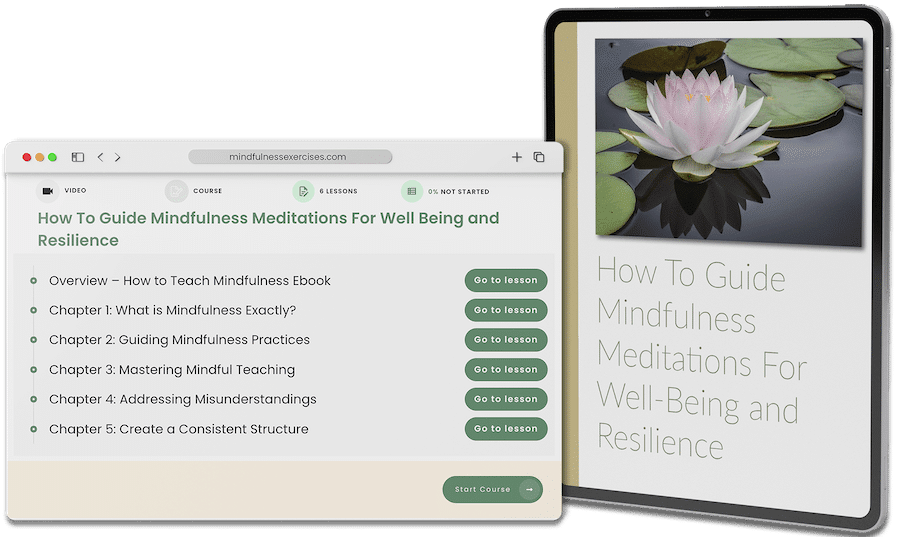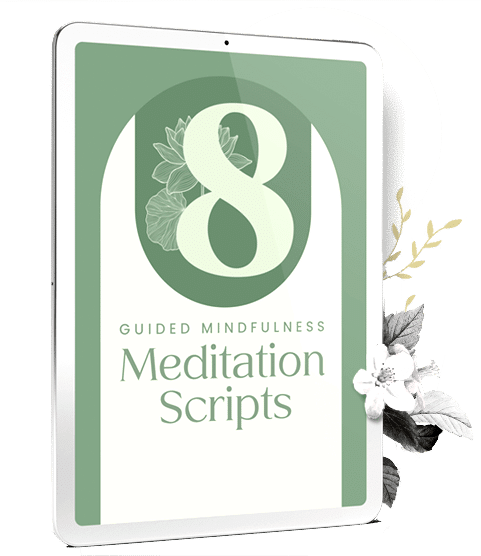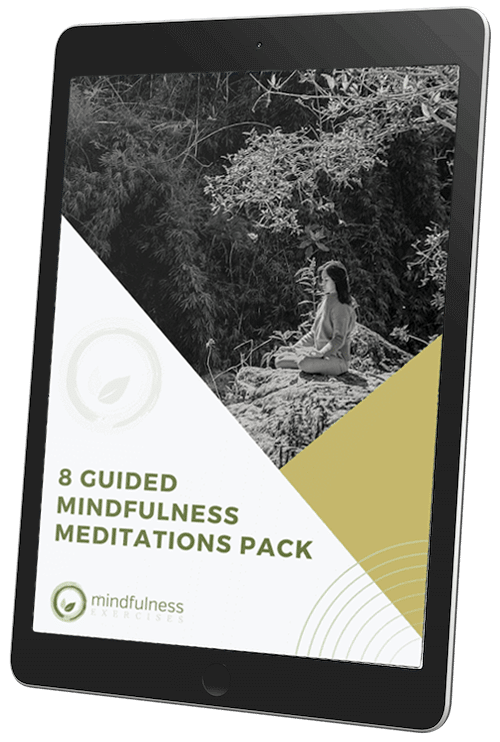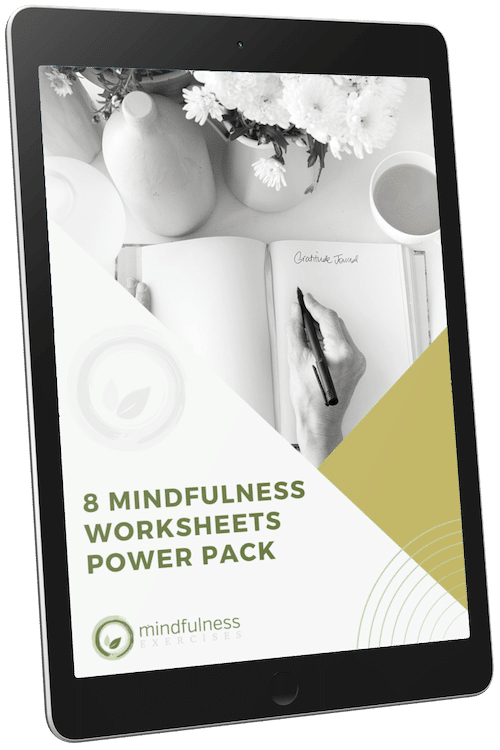Many of us cringe when we hear the sound of our own voice. It’s a common human reaction. It is possible, however, to overcome the dislike of our own voice and confidently guide others in meditation.
The process has nothing to do with changing how we speak. By strengthening self-awareness and building self-compassion, we not only become more confident in our authentic voice, but in the mindfulness practices that can transform our self-critical habits.
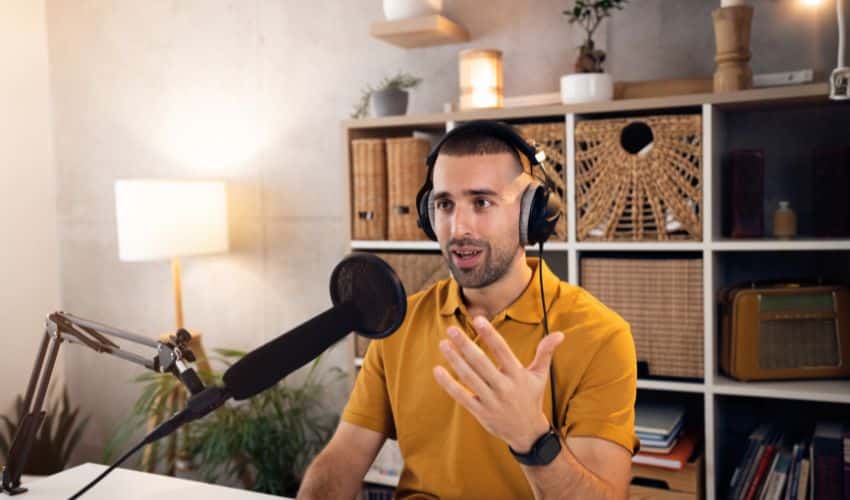
Why Do We Dislike The Sound Of Our Own Voice?
Research says physiology is partly to blame for why we hate the sound of our own voice. We simply don’t hear our voice the way others do. Because sound vibrates when it makes contact with an object, what we hear from inside our head differs from what others hear when our voice projects outwards toward them. What’s more, parts of the auditory cortex, the part of our brain that processes sound, shut down when we speak. What we hear of our own voice is thus incomplete.
Our perception of our voice is also clouded by our psychological make-up, our perceptions about the reactions of others, and past experience which has led to biases. We know from mindfulness teachings that one person may judge an experience as unlikable, while for another, that same experience can be neutral or even pleasant. What is the cause of this difference? Our history and habitual reactivity can contribute to harsh self-criticism, perfectionism, or unhelpful, misguided expectations.
When we give our inner critic an inappropriate amount of attention, we hinder our personal growth. Not only might we fail to realize our full potential, but we risk never sharing our best selves with others.
Mindfulness practices can help us quiet the voice of self-judgment and bring forth the voice of self-acceptance and self-compassion. It is the latter that is most reflective of our authentic self and benefits others immeasurably when it is shared.

Listening To Yourself With Self-Compassion
Learning to love your voice begins with the practice of self-compassion. Those who have cultivated a genuine self-compassion practice also make great teachers. When we’ve learned to address our own perceived shortcomings with grace, we can authentically help others do the same.
The practice of self-compassion begins with recognizing when the voice of self-criticism arises. With mindfulness, we can begin to discern between the voice of the inner critic and our truest, most authentic voice. Often, the conditioned voice of self-criticism is one that is driven by fear, pride, jealousy or misplaced anger.
Each of us has an inner critic. When we recognize that self-judgment is a universal, shared human experience, the thought that this voice is “us” immediately softens. We realize there’s no need to listen to this voice or to believe in what it says.
Instead of giving energy to the voice of judgment or shame, we can intentionally bring forward the voice of self-compassion. In moments when you hear the inner critic saying you don’t sound good enough, you don’t fit the mold, or that people are not going to like you, ask yourself, “What would the voice of self compassion say?”
If unsure, try practicing (silently or out loud) what you might say to your closest loved one if they were questioning whether the sound of their voice was good or bad, right or wrong.
Self-compassion researcher Dr. Chris Germer is an expert in anxiety disorders, and yet suffered from public speaking anxiety. It wasn’t until he began consistently practicing self-compassion that he was able to overcome his imposter syndrome and the related shame. He learned that by first holding ourselves in loving-kindness, we can hold our experience the same way.
Embracing Your Unique Voice as a Meditation Guide
As a meditation guide, what you embody is what you end up teaching. Just as you would wish your students to embrace their most authentic self and courageously share that best self with the world, you can too. Unapologetically sharing your unique voice, along with all its perceived imperfections, is part of your teaching presence.
Simply reminding yourself that you wish to ‘practice what you preach’ can help encourage a shift in attention from the sound of your voice, to the message it conveys. As a meditation guide, you know you can practice choosing where to place your focus. Again and again, remember that it’s your embodied courage and authentic presence that’s of the highest value - and not the voice with which you share it.
You might start by teaching meditation to friends and family, or in 1-on-1 or small group settings. As you build skill and confidence, however, be mindful that you cannot ever control how you are perceived by another. Take care not to avoid opportunities to share mindfulness with strangers, or even opportunities to compassionately self-assess your own recordings. While it’s important to move at your own pace and let yourself baby-step into courage, we also grow by taking risks.
Learn what it means to model mindfulness. Not only as a mindfulness teacher, but as anyone with an interest in helping others feel supported and accepted.
Mindfulness Exercises To Bring Forth Your Voice
For a teaching experience that is rooted in acceptance, self-compassion and courage, the following mindfulness meditations can help you cultivate a grounded presence, despite insecurities:
The following conversations with mindfulness and meditation experts may help you embrace vulnerability as part of the wisdom you bring to your teaching.
Having established a foundation in mindfulness and self-compassion, the following exercises can help you to center yourself and get grounded in authentic presence before leading a session.
Conclusion
We are each on an ongoing journey, granted infinite opportunity to deepen our mindfulness and self-compassion along the way. It’s helpful to remember that as meditation guides, we need not be perfect, but we do need to be committed to walking the same path we encourage in others.
With grace and loving-kindness, we can reflect on the relationship we have with our voice, and consider how we might take small steps toward embracing it. All that we learn in the process we can then authentically share, helping others embrace their own higher selves, with compassion and confidence.









